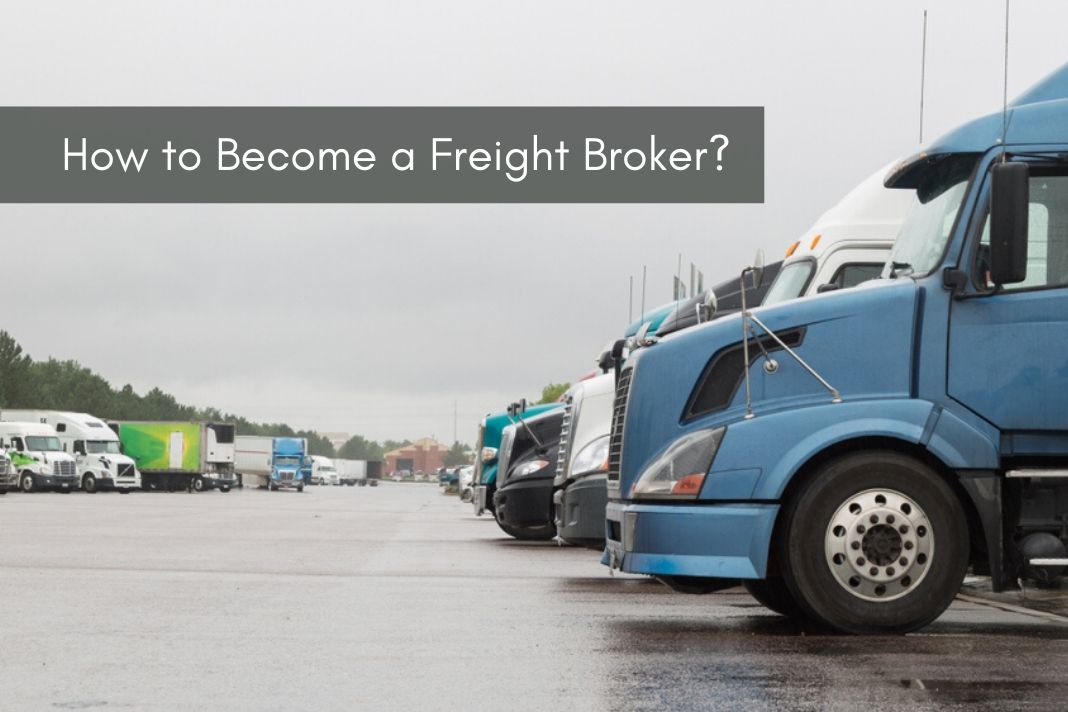
If the logistic industry fascinates you, like how goods are shipped, cargos are received, and heavy containers are transported from one country to another, you might find a career as a licensed freight broker quite exciting and rewarding. Freight brokers make a commendable living working in the logistics industry. They can earn as much as $90,000 per annum. This job doesn’t require an office setting. You can work from home and travel as and when needed. Know how to become a freight broker.
Learn the steps to become a freight broker and know about freight broker training, freight broker job description, and salary.
Freight Broker’s Job Description
Freight brokers are the missing link between the carrier companies and the shipper companies. They wear many caps in the logistics industry, right from being a negotiator to a connector to a marketing specialist. They are responsible for the rates, fast deliveries, more customers, and active service.
They negotiate the shipping price and delivery process from cargo shipping companies, connect shipping companies with businesses that need to send shipments and cargos, and crack a deal between the two. They ensure that while doing so, the carriers can maximize their loads.
Booking orders and lining carriers up are one essential part of their job description. However, brokers carry other crucial works too, such as document pickup and delivery systematically, track freight to and fro, regulate the legal aspects in transportation, and market to attract more clients.
Freight brokers also ensure that each phase of the transportation process is executed in time, so that the cargo or shipment arrives in good condition, safely.
How Much Do Freight Brokers Make
Since the professionals primarily rely on their commissions for income, determining the average freight broker’s salary can be a bit complex. In general, your commission or pay will be based on several factors, such as shipments, customer, location, transportation process, your experience, license, and the companies involved. However, as a licensed freight broker, you can earn an average salary of $43,000 per annum.
How to Become a Freight Broker
You need to obtain an educational qualification, go through comprehensive training, and earn the freight broker license to become a freight broker in the state.
Step 1: Gain Required Skills
Gain a bachelor’s degree that concentrates on business management, commerce, finance, and accountancy. You can also study a master’s degree in a related field to broaden your business opportunities. You will have to hone additional skills necessary for running a business, such as communication, critical analysis, people skills, and leadership skills.
Step 2: Take Freight Broker Training
To learn about the actual job, you must enroll in a freight broker training program from an accredited organization. The course will cover theoretical and practical training classes about transportation broking and logistics management.
Step 3: Make Your Business Legal
Freight broking is an independent business. So, you have to establish your own business. Please start by selecting a business name and getting it registered in your state. Make sure your chosen name is not already used at the US Patent and Trademark office. You can establish your business at your local business license department as a sole proprietorship, limited liability company, partnership, or corporation.
Step 4: Create a Business Plan
Your business plan must include establishing financial goals, funds, budget, short-term and long-term objectives, and mission statements, determining the niche you will be targeting, applying for a credit line, with the bank, your marketing, go-to strategy, office location, and market research. The information will help you deliver a reliable business.
Step 5: Get the Right Carriers
Finding the right carriers should be the first goal in your marketing strategy. Carriers act as a sail for the ship, i.e., you. Choose the airlines that work in the same field as you. Please make sure they are professional, trusted, and worthy. You can find carriers through online directories, broking events, and networks, via references, in LinkedIn and other business networking sites.
[Also Read: How to Make Your Trucking Business Successful]
Step 6: Get Your Broking Authority a.k.a the Freight Broker License
You have to obtain your freight broker license from the Federal Motor Carrier Safety Administration(1) (FMCSA). The grant is also referred to as the Motor Carrier Operating Authority. Before applying for licensure, you must get your USDOT number. The number is required at the time of registration on the FMCSA website. You have to pay a one-time freight broker license cost of $300 at the time of submitting the application form, the OP-1. The process usually takes between 4 and 6 weeks.
The FMCSA will send you an MC number through mail once your application is approved. There is a freeze period of 10 days after the MC number is issued. You will be granted your license after the 10 days.
Step 7: Get Your Broker Bond
The freight broker bond confirms that you will practice your profession by abiding the applicable rules and regulations set by the FMCSA. You have to obtain the BMC-84 warrant(2) before you receive the license. The bond is quite expensive to purchase. You must spend around $75000 to get the surety bond. You will get the bond only after a credit check, finance, and business assessment, and evaluation of the overall stability of your firm.
Once you acquire the bond and the license, the rest of the process will be similar to establishing any other business.




